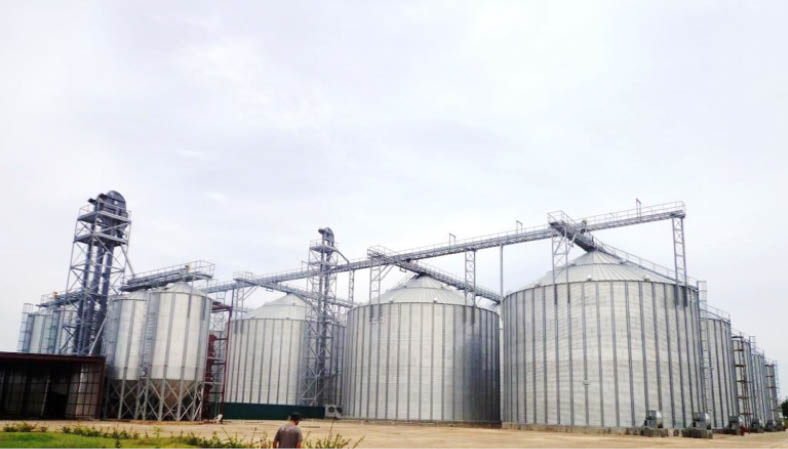2 weeks after, FG’s 40,000 tonnes of palliative grains yet to be distributed
Two weeks ago, President Muhammadu Buhari ordered the release of 40,000 tonnes of grains from the country’s strategic grains reserves to the less privileged, including workers whose income cannot sustain them, to cushion the burden of festivities (Easter and Sallah). However, since the flag off in Abuja two weeks ago, nothing much has been heard […]

Two weeks ago, President Muhammadu Buhari ordered the release of 40,000 tonnes of grains from the country’s strategic grains reserves to the less privileged, including workers whose income cannot sustain them, to cushion the burden of festivities (Easter and Sallah).
However, since the flag off in Abuja two weeks ago, nothing much has been heard about the distribution even as Easter has already gone while Sallah is around the corner.
- Afenifere seeks govt of nat’l unity, says Buhari lacks capacity
- 10 killed, 14 injured in Lagos-Ibadan expressway crashes
During the COVID-19 lockdown in 2020, tonnes of grains released for the people were held up in stores across the country by state officials. This shocked people and prompted vandalisation of the stores by #EndSARS protesters.
The federal ministry of agriculture and rural development said it had 90,000 tonnes of grains in its silos across the country, which constitutes only 6.9 per cent of the country’s 1.3 million-tonne capacity of the 33 silos.
However, the silos are largely empty as previous administrations said they did not have the money to fill them. But many experts have disagreed, because the country requires just about N100bn to fill the silos.
The agric ministry’s inability to get funds from the Federal Executive Council (FEC) to fill the silos prompted the concession of 19 of the silos to the private sector – a move many stakeholders faulted.
What the minister said
The agric minister, Dr Mohammad Mahmood Abubakar, during the flag off of the distribution of the 40,000 tonnes of grains at the Internally Displaced Persons (IDPs) camp in Abuja, said the IDPs and low income earners were the target of the federal government.
Dr Abubakar said, “We will distribute 40,000 tonnes across the country to those that need it; this is an instruction I received…when he (the president) summoned me to do this, and we will work with the humanitarian affairs ministry which will be distributing about 12,000 tonnes. We will also be working with the women affair’s ministry, the youths and sports ministry and any other strategic ministry so that the distribution is seamless.
“Our objective is to get this to those that need it, and we are also thinking about the current situation; which is a period of festivities: the Ramadan, Easter and Sallah, we feel there is a need to reach out.
“This is the reason for having the grains reserves, and when there is a need to release the grains, we release the grains, and we are doing that just as we did during the COVID-19 pandemic when Mr President directed the release of 70,000 tonnes.”
Do we really have such food in our silos?
The agric ministry described as untrue those who said it had nothing in the silos.
Dr Abubakar said, “We have more than 40,000 tonnes of grains. We restocked the grains after releasing the 70,000 tonnes.
“We have about 90,000 tonnes, and we are releasing about 40,000, and if and when another need arises, we will release again.
“As we speak, Mr President has approved additional funding for restocking our silos. We are currently restocking even as we are releasing, so it is available.
“So I don’t know why somebody would think there is no grains.”
‘Restocking not triggering high cost of grains’
The minister also said there was no way that the current restocking could be responsible for the high cost of grains in the market, adding that “the federal government is buying the excess grains that are there to be bought. If it is not available, we will not buy and stock it. What is the point of stocking when people need it? We are currently releasing, and there are grains in the market.”
Avoiding COVID-19 palliatives disaster
Dr Abubakar explained why the ministry is adopting a new approach in the distribution to avoid the mistakes of the COVID-19 palliatives.
He said, “Anytime you do something for the first time, you would always know what to improve on the next time – loopholes and other pitfalls – so we are very much conscious of that and that is why we are doing this slightly different through all the ministries.”
Why release behind schedule
Credible sources in the agric ministry told Daily Trust that there were issues affecting the release of the grains, among which is insecurity.
A source said, “The ministry wants to avoid a situation where these guys (bandits, terrorists) will attack trucks and kill people.”
Another source said they were still awaiting the minister’s approval and release of funds to embark on the exercise.
How the grains will be distributed
According to reliable information from the ministry, IDPs and vulnerable Nigerians will get 12,000 tonnes through the ministry of humanitarian affairs and disaster management. The Poultry Farmers Association of Nigeria (PAN) is expected to get 5,000 tonnes, while states, government establishments, women groups, religious groups, etc, will get 23,000 tonnes.
